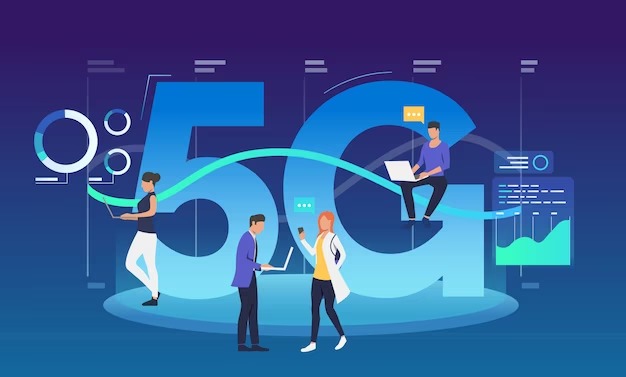The Global Race for 5G Dominance and Its Economic Implications

Introduction
The advent of 5G technology stands at the forefront of the fourth industrial revolution, promising unprecedented data speeds, reduced latency, and the ability to connect more devices simultaneously. As nations around the globe vie for dominance in this emerging field, the race for 5G is not just a matter of technological superiority but also of economic leverage, geopolitical power, and societal transformation.
Understanding 5G and Its Technological Leap
5G, or the fifth generation of wireless technology, marks a significant leap from its predecessor 4G in terms of speed and efficiency. 5G is expected to offer speeds up to 100 times faster than 4G, with the potential to revolutionize industries through enhanced connectivity, real-time data sharing, and supporting the burgeoning Internet of Things (IoT) ecosystem.
The Economic Implications of 5G
1. Boost in Productivity: With higher speeds and lower latency, 5G is poised to enhance productivity across various sectors, including manufacturing, healthcare, and transportation.
2. Job Creation: The deployment of 5G infrastructure is expected to create millions of jobs worldwide, contributing significantly to economic growth.
3. Innovation and New Services: 5G will enable new services and applications, including autonomous vehicles, smart cities, and advanced telemedicine, further expanding markets and economic opportunities.
Global Players and the Race for Dominance
The race for 5G is a global competition with major players including the United States, China, South Korea, and European nations. Each is investing heavily in 5G, with the aim not only to boost their own economy but also to establish a strategic position in the global market.
- United States: With initiatives like the American 5G Fast Plan, the U.S. is pushing for rapid deployment and adoption of 5G services.
- China: China is a formidable player in the 5G race, with significant investments and a strategic plan to deploy 5G across its vast landscape. Chinese companies like Huawei are at the forefront of 5G technology, though they face international scrutiny and regulatory challenges.
- South Korea: Often cited as the first country to roll out 5G on a large scale, South Korea’s commitment to technology innovation makes it a key player in the 5G arena.
- Europe: European countries are collaborating to harmonize 5G standards and deployment, aiming to drive growth and ensure security in the 5G network.
The Geopolitical Stakes of 5G
5G technology is not just an economic asset but also a geopolitical tool. Nations leading in 5G stand to gain significant influence in setting global standards and norms for telecommunications. The technology is also at the center of security debates, with concerns over espionage and the protection of critical infrastructure.
Challenges and Considerations
While the race for 5G is promising, it comes with its set of challenges:
- Infrastructure Costs: The deployment of 5G requires substantial investment in new infrastructure, including cell towers and updated technology.
- Security Concerns: Ensuring the security of 5G networks is paramount, given their potential use in critical communication and data transmission.
- Digital Divide: There is a concern that 5G could exacerbate the digital divide, leaving rural and underserved communities behind.
Future Outlook: Beyond 5G
As the world embarks on this 5G journey, it’s also essential to look beyond. The next generation of wireless technology, 6G, is already on the horizon, promising even more dramatic transformations. However, the current focus remains on deploying 5G efficiently and equitably, ensuring that its benefits are realized across the globe.
Final Verdict
The global race for 5G dominance is more than a technological competition; it’s a pivotal moment that will determine economic landscapes, geopolitical power balances, and the future of digital society. As nations invest and strategize, the outcomes of this race will resonate through every aspect of our lives, from the way we work and communicate to how we manage health and safety. The world watches with bated breath as the 5G era unfolds, heralding a new dawn of connectivity and innovation.






